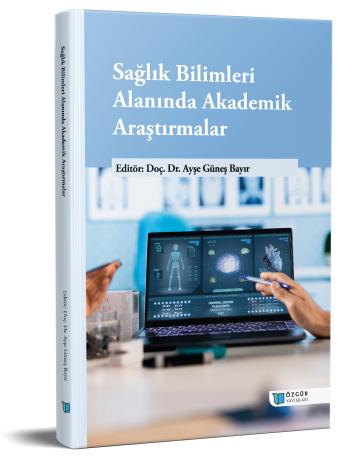
Özel Öğrenme Güçlüğü Olan Çocuklarda Motor Gelişim Özellikleri ve Fonksiyonel Yeterlilikler
Şu kitabın bölümü:
Güneş Bayır,
A.
(ed.)
2025.
Sağlık Bilimleri Alanında Akademik Araştırmalar.
Özet
Özel öğrenme güçlüğü normal ya da normalin üzerinde zekâ seviyesine sahip olunmasına rağmen akademik alanda yaşanan zorluklarla tanımlanmaktadır. Özel öğrenme güçlüğü olan çocuklar yaşadıkları akademik zorlukların yanında motor gelişim süreçlerinde akranlarına göre farklılıklar yaşamaktadır. Özel öğrenme güçlüğü olan çocuklarda sıklıkla kaba ve ince motor beceri yetersizlikleri, denge problemleri ve koordinasyon güçlükleri görülmektedir. Motor gelişimdeki bu farklılıkların erken çocukluk döneminden itibaren görülür ve okul çağı boyunca devam eder. Özel öğrenme güçlüğü olan çocuklar ayrıca günlük yaşam aktivitelerinde, sosyal beceri gerektiren oyunlara katılımda ve karmaşık motor görevleri gerçekleştirmede zorluklar yaşarlar. Fonksiyonel yeterliliklerin sınırlı olması, fiziksel aktivite düzeylerinde azalma, özgüven kaybı ve sosyal izolasyon gibi ikincil etkileri de beraberinde getirebilmektedir. Bu bölümde motor becerilerdeki performansın bilişsel ve akademik gelişimle ilişkisi incelenmiş, gelişimsel değerlendirme ve destekleyici müdahale yaklaşımlarının önemi vurgulanmıştır. Özel öğrenme güçlüğü olan çocuklarda motor gelişim farklılıklarının üzerinde durularak eğitimciler, terapistler ve araştırmacılar için bütüncül bakış açısı geliştirilmesi planlanmış ve gelişimlerinin desteklenmesine yönelik rehabilitasyon planı oluşturmada bilimsel bir çerçeve sunulması amaçlanmıştır.

